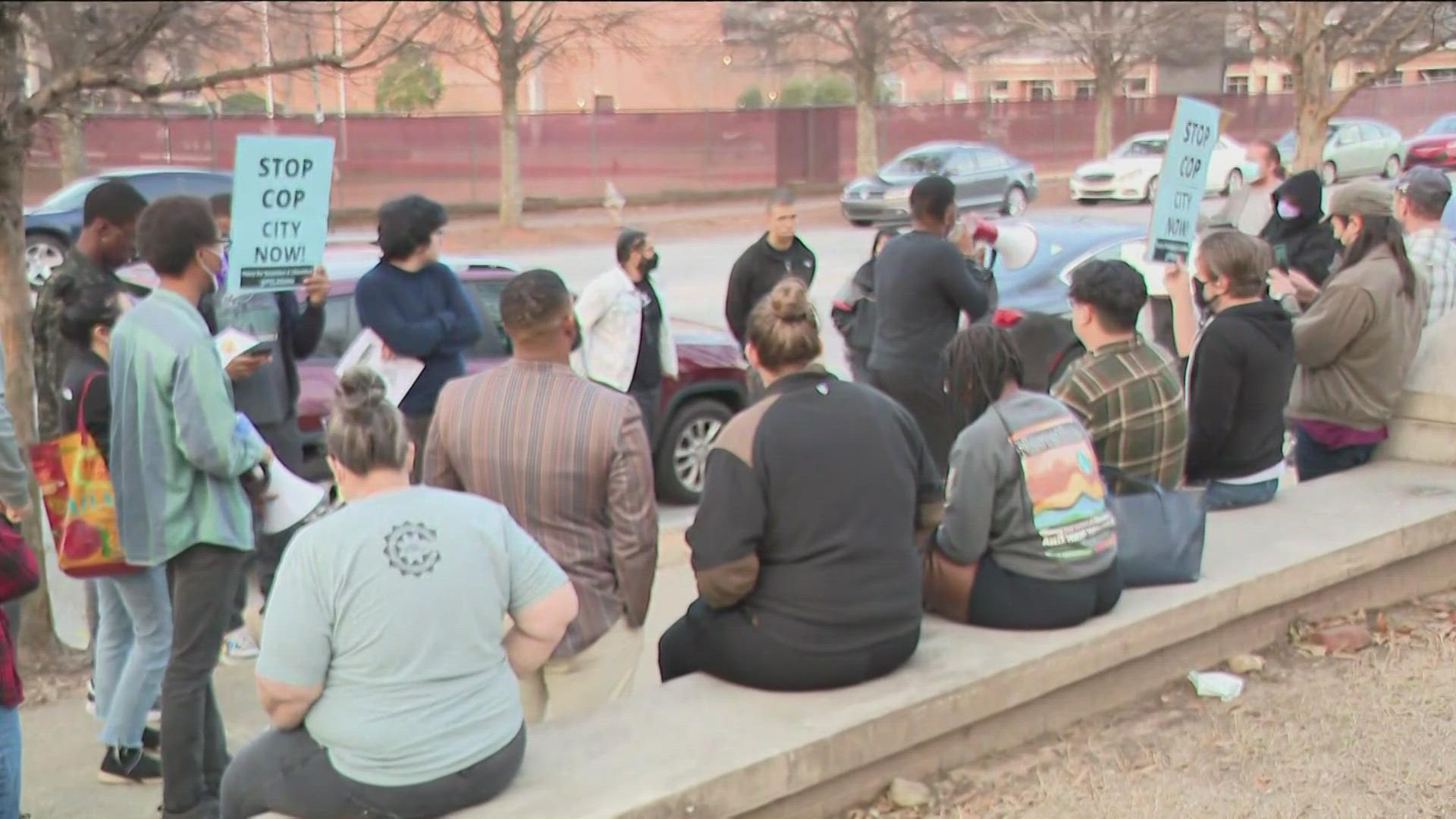ATLANTA — The opposition to the new Atlanta Public Safety Training Center continues to grow and Morehouse professors are now among the latest to join the fight.
“A physical facility to the tune of $90 million is off cue with what is happening in terms of social justice,” Morehouse professor Stephane Dunn said.
Dunn is among 32 educators at the Historically Black College, who signed an open letter opposing the center.
Andrew Douglas, another Morehouse professor, echoed similar thoughts, “Poor, Black working-class people’s voices have not been heard in this process and we felt an obligation to call attention to that.”
In the letter, the professors wrote, about Morehouse’s most famous alumni Dr. Martin Luther King, Jr. and the beloved community he described in his 'I Have A Dream' speech, saying this project has no place in that vision.
“Part of the problem with 'Cop City' too is it’s a very clearly preparing the police force in a militarized type of way. And I think it calls for shooting ranges, they’re practicing large-scale crowd, suppression strategies. You know, this is about bringing military tactics to our cities in our communities,” Douglas said.
He added that he’s concerned the site could actually lead to more violence in the community.
“We need to reduce the number of interactions between civilians and police – whenever police are involved there is a risk that it will end in violence or death," Douglas said.
The professors said the community needs to rethink public safety. In a press conference last week, Atlanta Mayor Andre Dickens said the new training facility aims to directly address some of the concerns.
“Our training includes vital areas like de-escalation training techniques, mental health, community-oriented policing, crisis intervention training as well as Civil Rights history, education,” Dickens said.
However, the professors said the efforts need to go beyond what they’ve heard so far about this project.
“I don’t think it’s been thought out at all. People sitting in classrooms, going 'this is the history... of people getting beat down by police'... not decolonizing. That’s not what that looks like,” Dunn said.

